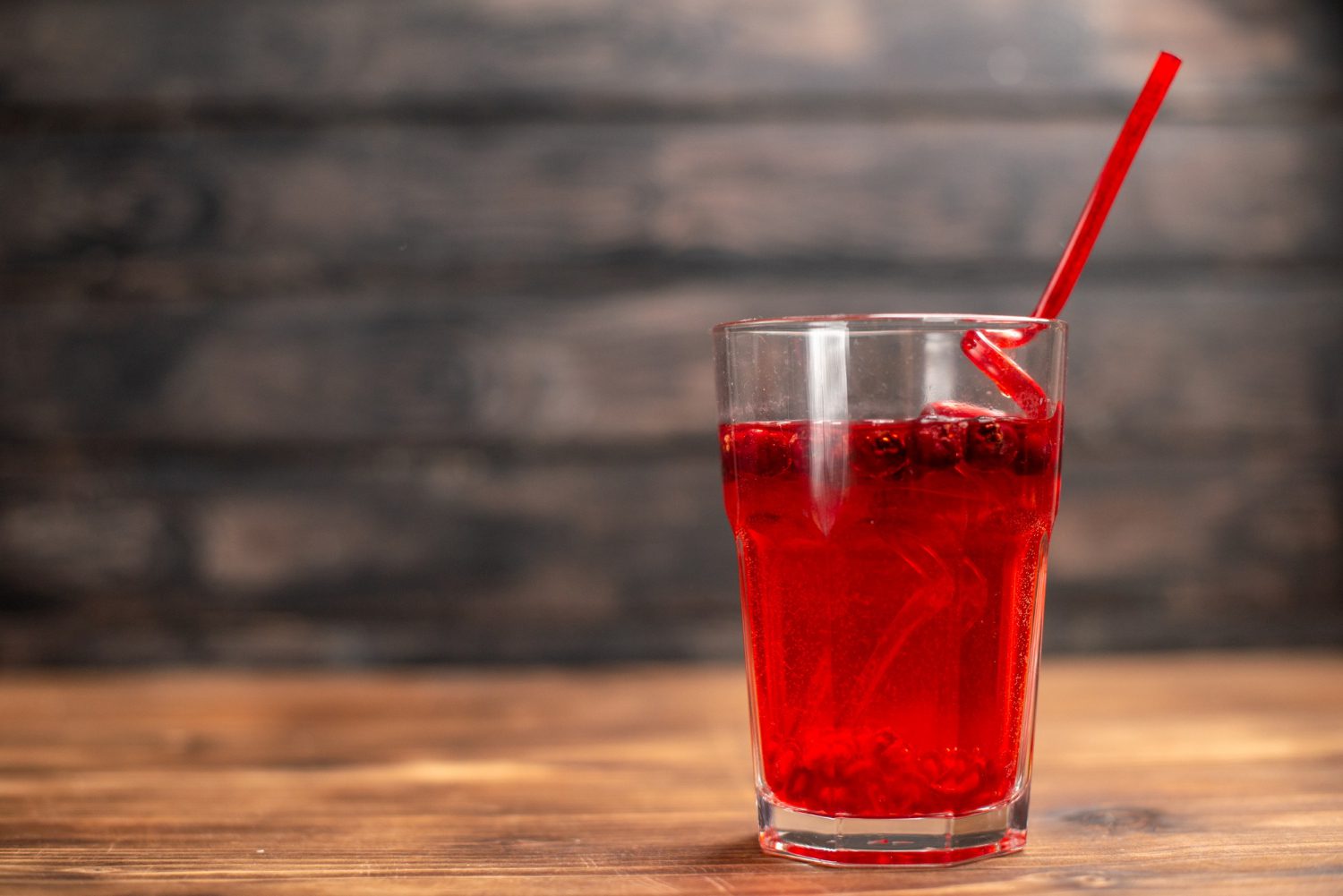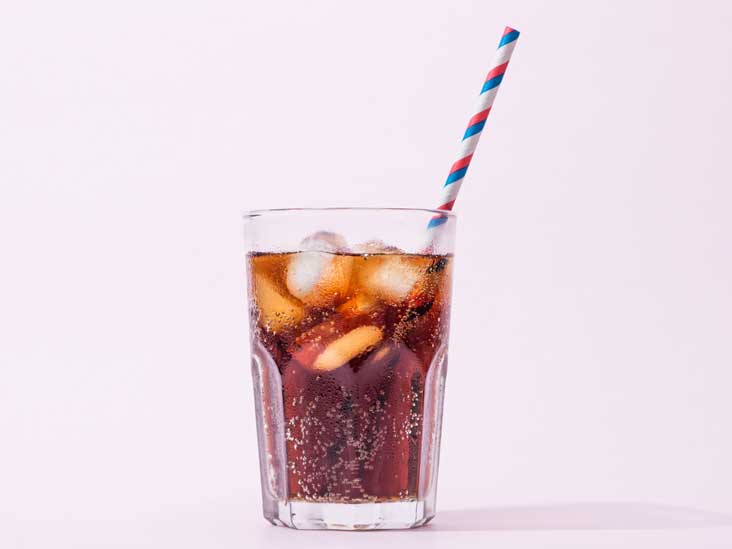
Does Diet Soda Really Cause Kidney Stones? The Truth Uncovered!
admin
- 0
- 9
Diet soda does not directly cause kidney stones; however, it may increase the risk of developing them due to the high levels of phosphoric acid and artificial sweeteners present in these beverages. Kidney stones are formed when certain substances in the urine become concentrated and solidify, leading to painful stones in the kidneys or urinary tract.
Diet soda, with its high phosphoric acid content, can alter the ph balance in the urine and contribute to the formation of kidney stones. Additionally, artificial sweeteners found in diet soda have been linked to an increased risk of kidney stone formation.
Therefore, while diet soda doesn’t directly cause kidney stones, it may be wise to limit its consumption to reduce the risk of developing them.

Table of Contents
ToggleUnderstanding Kidney Stones
Kidney stones can be a painful and uncomfortable experience for those who have had them. They can vary in size and shape, ranging from small gravel-like stones to larger ones that resemble pebbles. If you’re wondering whether diet soda can cause kidney stones, it’s important to first understand the basics of kidney stones and how they form in the body.
In this section, we will provide an overview of kidney stones and their causes, delve into the different types of kidney stones, and explore the process by which kidney stones form in the body.
An Overview Of Kidney Stones And Their Causes
- Kidney stones are hard deposits that form in the kidneys when certain minerals and salts in the urine crystallize and stick together.
- They can be made up of different substances, including calcium, oxalate, uric acid, cystine, and struvite.
- Several factors can contribute to the formation of kidney stones, such as genetics, dehydration, diet, obesity, certain medical conditions, and certain medications.
The Different Types Of Kidney Stones
- Calcium stones: These are the most common type of kidney stones and are usually made up of calcium oxalate or calcium phosphate.
- Uric acid stones: These stones form when there is an excess of uric acid in the urine.
- Struvite stones: These stones are often caused by urinary tract infections and can grow quite large.
- Cystine stones: These stones are caused by a hereditary disorder that leads to the build-up of cystine in the urine.
How Kidney Stones Form In The Body
- The formation of kidney stones starts with the crystallization of certain minerals and salts in the urine.
- Factors such as dehydration, diet, and certain medical conditions can increase the concentration of these substances in the urine, making it more likely for them to form crystals.
- Over time, these crystals can grow in size and form solid masses known as kidney stones.
- Once formed, kidney stones can either stay in the kidneys or travel through the urinary tract, causing pain and other symptoms.
Understanding how kidney stones form in the body is crucial for determining the role of diet soda in their development. In the following sections, we will explore the relationship between diet soda and kidney stones in more detail.
The Link Between Diet Soda And Kidney Stones
When it comes to the potential connection between diet soda consumption and kidney stones, there has been much debate among researchers and experts. While some studies have suggested a link, others have found no significant association. Here, we will explore the topic and delve into the ingredients in diet soda that may contribute to the formation of kidney stones.
Additionally, we will examine research studies conducted on this subject and discuss their findings. So, let’s dive into the facts and separate the truth from the myths.
Exploring The Potential Connection Between Diet Soda Consumption And Kidney Stones:
- Diet soda is often consumed by individuals who are looking to reduce their calorie intake or control their blood sugar levels. However, some studies have found a possible relationship between diet soda consumption and an increased risk of kidney stones.
- One theory is that the artificial sweeteners used in diet soda, such as aspartame or sucralose, may play a role in the formation of kidney stones. These sweeteners are known to be excreted through the kidneys and can potentially contribute to the development of urinary stones.
- Another factor that may link diet soda to kidney stones is its high phosphoric acid content. This acid is necessary to give the soda its tangy flavor but can increase the acidity of urine, potentially leading to the formation of stones.
Understanding The Ingredients In Diet Soda That May Contribute To Kidney Stones:
- Artificial sweeteners: Aspartame, sucralose, and other artificial sweeteners used in diet soda may increase the risk of kidney stone formation through their effects on urinary excretion.
- Phosphoric acid: The high levels of phosphoric acid in diet soda can lead to acidic urine, which may contribute to the development of kidney stones.
- Caffeine: While caffeine itself may not directly cause kidney stones, it is a diuretic that can increase urine production. This increased urine output may lead to dehydration, which is a risk factor for stone formation.
Research Studies On The Topic And Their Findings:
- A study published in the clinical journal of the american society of nephrology found that consuming one or more servings of diet soda per day was associated with a higher risk of developing kidney stones, particularly in women.
- However, a review of multiple studies published in the journal of the academy of nutrition and dietetics found no significant association between diet soda consumption and kidney stone risk.
- It is worth noting that these studies have limitations, and more research is needed to establish a definitive link between diet soda and kidney stone formation. Factors such as overall diet, fluid intake, and other lifestyle factors may also contribute to stone formation.
While the evidence regarding the link between diet soda consumption and kidney stones remains inconclusive, it is important to consider the potential risks and benefits of consuming these beverages. As always, maintaining a balanced diet, drinking an adequate amount of water, and consulting with a healthcare professional can help individuals make informed choices regarding their dietary habits.
Debunking The Myth: Is Diet Soda The Real Culprit?
Is Diet Soda The Real Culprit?
When it comes to kidney stone formation, many people are quick to blame diet soda as the main culprit. But is this claim backed by solid evidence or is it simply a myth? In this section, we will debunk the myth surrounding the association between diet soda and kidney stones.
We will examine other factors that may contribute to kidney stone formation, explore the role of other dietary choices, and differentiate between correlation and causation in the link between diet soda and kidney stones.
Examining Other Factors That May Contribute To Kidney Stone Formation:
- Dehydration: Insufficient fluid intake can lead to concentrated urine, making it easier for kidney stones to form.
- High-sodium diet: Consuming excessive amounts of sodium can increase the amount of calcium in urine, promoting the formation of kidney stones.
- Obesity: Being overweight or obese can contribute to the development of kidney stones due to changes in urine composition and metabolism.
- Family history: Genetic factors can play a role in kidney stone formation, as some individuals may have a higher predisposition to the condition.
Exploring The Role Of Other Dietary Choices In Kidney Stone Development:
- High-protein diet: Diets rich in animal protein, such as red meat and poultry, can increase the excretion of calcium and uric acid in urine, increasing the risk of kidney stones.
- Oxalate-rich foods: Foods like spinach, rhubarb, and chocolate contain high levels of oxalate, a compound that can combine with calcium in the urine to form kidney stones.
- Excess sugar consumption: High sugar intake, not limited to diet sodas alone, has been associated with an increased risk of kidney stone formation.
Differentiating Between Correlation And Causation In The Association Between Diet Soda And Kidney Stones:
- Correlation does not always indicate causation: Just because there is an association between diet soda consumption and kidney stones does not mean that the soda is the direct cause of the stones. Other factors, such as an overall unhealthy diet or lifestyle choices, may contribute to both diet soda consumption and kidney stone development.
- Moderation is key: While excessive diet soda consumption may have negative health effects, moderate intake is unlikely to be the sole cause of kidney stones. It is important to consider the overall dietary and lifestyle factors in order to determine the true cause of kidney stone formation.
While the association between diet soda and kidney stones is worth considering, it is important to take a comprehensive approach when examining the factors that contribute to kidney stone formation. By examining other factors, exploring the role of different dietary choices, and understanding the difference between correlation and causation, we can gain a better understanding of the relationship between diet soda and kidney stones.
The Impact Of Diet On Kidney Stone Risk
For those who are concerned about the development of kidney stones, understanding the impact of diet is crucial. Diet plays a significant role in kidney stone prevention, and making dietary changes can greatly reduce the risk of stone formation. Hydration, in particular, has been shown to have a significant effect on kidney stone development.
In this section, we will explore the relationship between diet and kidney stone risk, as well as discuss the importance of hydration in preventing stone formation. Let’s dig deeper into these topics:
Making Informed Choices: Moderation And Balance
Encouraging A Balanced Approach To Diet And Lifestyle Choices
When it comes to maintaining kidney health and reducing the risk of kidney stones, it’s important to adopt a balanced approach to your diet and lifestyle choices. While diet soda consumption has been linked to an increased risk of kidney stones, it is just one factor among many.
By focusing on moderation and balance, you can make informed choices that promote overall kidney health. Here are some key points to keep in mind:
- Aim for a varied and balanced diet: Incorporate a wide range of fruits, vegetables, whole grains, lean proteins, and healthy fats into your meals. This helps ensure that you get all the essential nutrients your body needs to function properly.
- Stay hydrated: Adequate hydration is crucial for preventing kidney stones. Aim to drink plenty of water throughout the day to keep your urine diluted and promote the flushing out of potential stone-forming substances.
- Limit soda consumption: While it’s tempting to reach for a can of diet soda, try to reduce your intake. Even though it may be sugar-free, diet soda is still high in phosphoric acid, which has been linked to an increased risk of kidney stones.
- Choose healthier alternatives: Instead of reaching for soda as your go-to beverage, opt for healthier alternatives such as herbal tea, infused water, or natural fruit juices (with no added sugars).
- Monitor your calcium intake: Contrary to popular belief, a moderate amount of dietary calcium is actually beneficial for kidney stone prevention. Aim to meet your daily recommended calcium intake through foods like low-fat dairy products, fortified plant-based milks, and calcium-rich vegetables.
- Consult a healthcare professional: If you’re concerned about your kidney stone risk or have a history of kidney stones, it’s always a good idea to consult with a healthcare professional. They can provide personalized guidance based on your individual situation.
Remember, everyone’s kidney stone risk factors and dietary needs can vary, so it’s important to approach your choices with an understanding of your own body. By maintaining balance and making informed decisions, you can reduce your risk of kidney stones and promote overall kidney health.
Frequently Asked Questions For Does Diet Soda Cause Kidney Stones
Can Diet Soda Increase The Risk Of Kidney Stones?
While the direct link between diet soda and kidney stones is still being studied, some research suggests that the artificial sweeteners used in these drinks may contribute to stone formation. It’s important to maintain a balanced diet and stay hydrated to reduce the risk of kidney stones.
How Does Diet Soda Affect Kidney Health?
Diet soda contains high levels of phosphoric acid, which can increase the acid levels in urine and potentially lead to the formation of kidney stones. Additionally, the artificial sweeteners used in these drinks may affect kidney function over time. Moderation and maintaining a healthy lifestyle are key.
Does Drinking Diet Soda Increase Dehydration And Kidney Stone Formation?
Diet soda has a diuretic effect, meaning it can increase the frequency of urination and potentially contribute to dehydration. Dehydration is a risk factor for kidney stone formation. It’s crucial to balance consumption of diet soda with adequate water intake to maintain hydration and reduce the risk of kidney stones.
Conclusion
The link between diet soda consumption and kidney stones remains inconclusive. While some studies suggest a potential association, others find no significant evidence to support this claim. It is important to note that kidney stones can develop due to various factors, including genetics, diet, and hydration levels.
Therefore, solely blaming diet soda would be oversimplifying the issue. However, it is wise to consider the potential risks associated with excessive diet soda consumption. As diet sodas often contain artificial sweeteners and phosphoric acid, which can affect kidney function, moderation is key.
To reduce the risk of kidney stones, it is advisable to maintain a balanced diet, drink plenty of water, and consult with a healthcare professional if experiencing any related symptoms. As with any health concern, understanding individual needs and making informed choices is crucial for maintaining optimal well-being.



